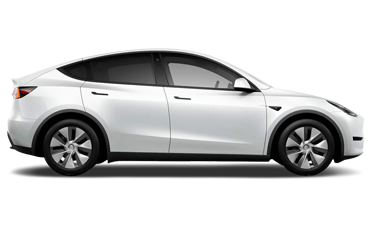5 ways to make the switch to EV
With the shift to electric vehicles continuing to grow, and the 2030 deadline for ending the sales of new petrol and diesel cars looming, more drivers are exploring accessible and affordable ways to make the switch. Here are five ways drivers can make the switch to electric vehicles and why it’s easier than you think.

1. Salary sacrifice schemes
Salary sacrifice car schemes are one of the easiest and most affordable ways to drive an electric vehicle. Many employers now include it as part of their benefits package, which sees employees agree to sacrifice some of their gross salary in exchange for a car. The schemes often incorporate insurance, road tax, and maintenance costs, including cover for battery health.
As payments are taken directly from your pre-tax income, you’ll save on both income tax and national insurance, so you’re essentially paying for your EV with money that would otherwise go to taxes. Electric vehicles are also taxed much less than petrol or diesel company cars as they have a significantly lower benefit-in-kind (BiK) tax rate, which is a tax on perks you get from work.
For employers
Salary Sacrifice
Salary sacrifice car schemes create tax savings for both employers and their employees, making sustainable driving an affordable reality.
2. Used EVs
Making the switch to an EV doesn’t always mean going brand new. The used EV market is growing rapidly as more vehicles enter the second-hand market, giving drivers a greater choice of models to choose from. Many used EVs come with the same advanced features and technology as newer models, but at a lower cost, making it an affordable way to transition.
Battery life is also less of a concern than many might think. EV batteries are designed to last, and most manufacturers offer warranties of seven to eight years or more, meaning many used EVs come with plenty of warranty coverage remaining which helps give drivers peace of mind.

3. Government schemes
Alongside Benefit-in-Kind (BiK) savings there are a number of other government schemes and incentives to help support the transition to EVs. The Electric Car Grant launched in July, offers up to £3,750 off the cost of qualifying new EVs priced under £37,000, making entry-level models more accessible.
Support is also available on home charging. The Home Charge Point Grant covers up to £350 or 75% of the cost for home installation, making it easier for drivers to set up a charging point at home without large upfront costs.
Find out more about The Electric Car Grant
4. Leasing
Leasing offers a flexible and risk adverse solution for drivers unsure about switching to an EV. For those weighing up the move to electric, leasing allows you to experience a new or used EV without high upfront cost of ownership, and gives drivers the option to return or upgrade at the end of the contract.
Like salary sacrifice schemes, many leasing packages also include extras such as maintenance, MOTs and servicing. This saves the driver time and money by bundling all these costs into one monthly payment and reducing the hassle of arranging separate policies. It also means the car remains safe and reliable throughout its use.
For employees
How does salary sacrifice work for employees?
Save on tax and enjoy all-inclusive driving when you get an EV with salary sacrifice.
5. Car Clubs
EV car clubs are an ideal choice for people who only need to use a car occasionally. They provide a membership-based, pay-as-you-drive system for accessing EVs for short-term use, offering a flexible way to experience an EV without the responsibilities or costs of full-time ownership.


